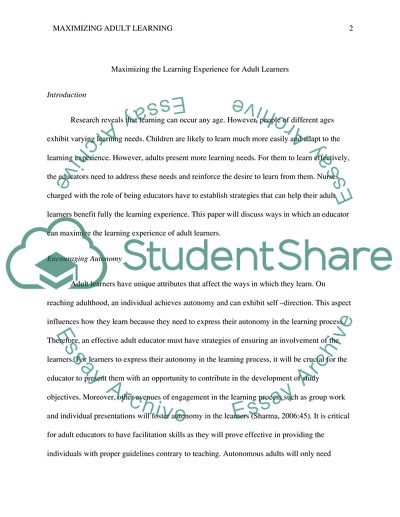Cite this document
(“Maximizing the learning experience for adult learners (Principles for Essay”, n.d.)
Retrieved from https://studentshare.org/education/1616463-maximizing-the-learning-experience-for-adult-learners-principles-for-adult-learning
Retrieved from https://studentshare.org/education/1616463-maximizing-the-learning-experience-for-adult-learners-principles-for-adult-learning
(Maximizing the Learning Experience for Adult Learners (Principles for Essay)
https://studentshare.org/education/1616463-maximizing-the-learning-experience-for-adult-learners-principles-for-adult-learning.
https://studentshare.org/education/1616463-maximizing-the-learning-experience-for-adult-learners-principles-for-adult-learning.
“Maximizing the Learning Experience for Adult Learners (Principles for Essay”, n.d. https://studentshare.org/education/1616463-maximizing-the-learning-experience-for-adult-learners-principles-for-adult-learning.


